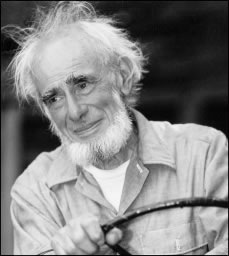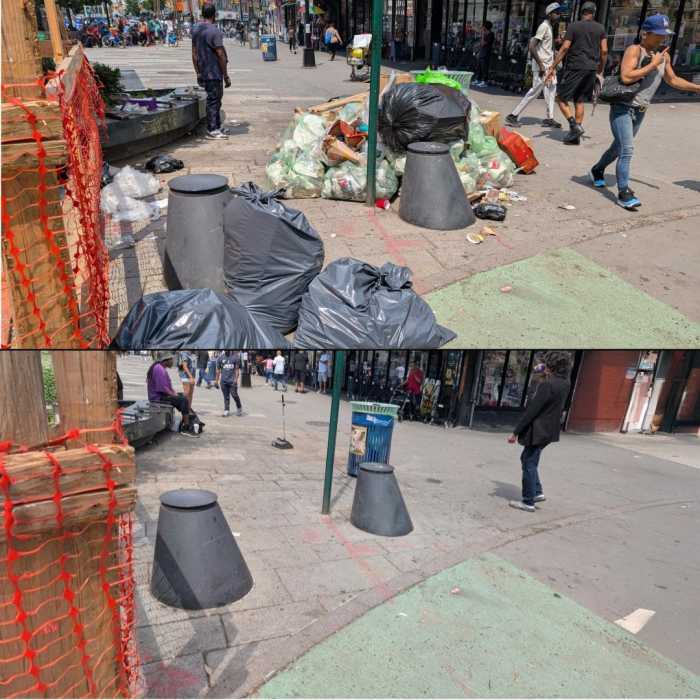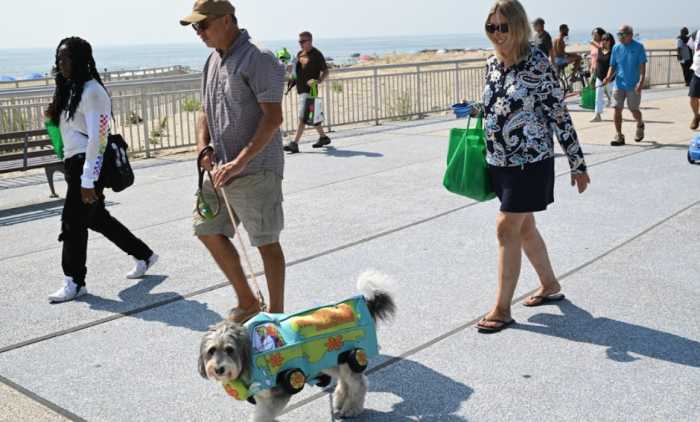By Albert Amateau
Robert B. Nichols, poet, playwright, novelist and the lead architect of the 1969 redesign of Washington Square Park, died Thurs., Oct. 14, in his home in Thetford, Vermont, at the age of 91.
He died of complications of prostate cancer, said his daughter, Eliza Nichols, dean of the school of fine and performing arts of Columbia College in Chicago.
A co-founder of the Judson Poets Theater, Robert Nichols was also active in the early days of Theater for the New City and took part in the street productions of Bread and Puppet Theater in the early 1960’s.
“He also started a construction company on the Lower East Side, building vest-pocket playgrounds to redeem a neighborhood where landlords were burning out buildings,” recalled his daughter.
“He was among the first to protest the use of Agent Orange [in Vietnam] and went on a hunger strike in the basement of Judson Church,” she said.
He was married to the late author Grace Paley, his second wife, from 1972 until her death in 2007, He was divorced in 1969 from his first wife, Mary Perot Nichols, city editor and columnist for the Village Voice, who was later director of WNYC, the municipal radio and television stations. Perot died in 1996.
The redesign of Washington Square Park was part of a long process in which community preferences were often divided.
“My father rode his bicycle from meeting to meeting to get input from as many people as possible,” his daughter recalled.
The mounds — a group of three small play hills — in Washington Square Park were his idea.
“He found out that they were going to cover them with the wrong surface so he went and lay down on them until they promised to do it right,” his daughter said.
Liza Béar , a filmmaker who interviewed him for a documentary she was making about the current redesign of Washington Square Park, said he was a humorous, perceptive and thoughtful subject.
“I had to meet him because his was the most compelling criticism of the new design,” she said. Béar is still editing her film, “Squaring Off: The Fight To Save Washington Square.”
Joel Kovel, a friend for more than 30 years and a frequent visitor to Nichols’s Vermont home, said, “He’s hard to sum up: tough, independent, fierce and loyal, all those things. He was a human wonder, chopping wood until just a few years ago.”
Kovel, himself a writer, paid tribute to Nichols’s recent poetry.
“He had a really lyrical quality,” Kovel said.
Robert Brayton Nichols was born in Worcester, Mass., to Charles L. and Claire Lalonde Nichols. He was a Navy officer in the Pacific during World War II serving in a unit that assembled landing craft, according to Kovel. Nichols went to Harvard where he earned a bachelor’s degree and returned later to earn a degree in landscape architecture. He came to New York in 1948
His first book of poems, “Slow Newsreel of Man Riding Train,” was published in 1962 by City Lights in its Pocket Poets Series. A four-part series of novels published by New Directions is set in the fictional utopia of Nghsi-Altai. A collection of short stories, “In the Air,” was published by John Hopkins University Press. Nichols’s “From the Steam Room,” published by Tilbury House, is a satiric novel that takes place in New York City during the 1970’s financial crisis. “Red Shift,” a book of his poetry, was printed by Peter Schumann, founder of Bread and Puppet Theater and a friend and neighbor of Bob Nichols and Grace Paley in Thetford.
In addition to his daughter Eliza, who was formerly vice provost at The New School, another daughter, Kerstin Nichols, and a son, Duncan Nichols, both of Thetford, Vermont — all children of Mary Perot Nichols — also survive. Four grandchildren and three step-grandchildren also survive.
His family and friends plan memorials in New York and Vermont, to be announced later.






























